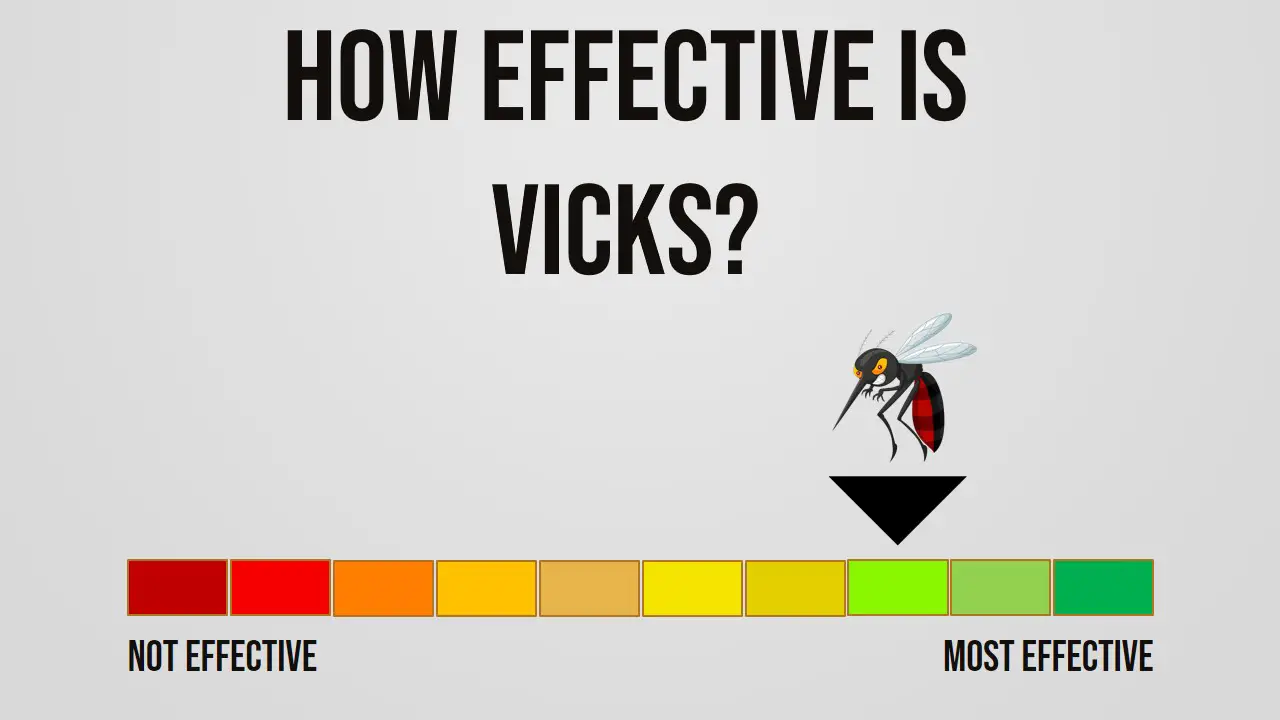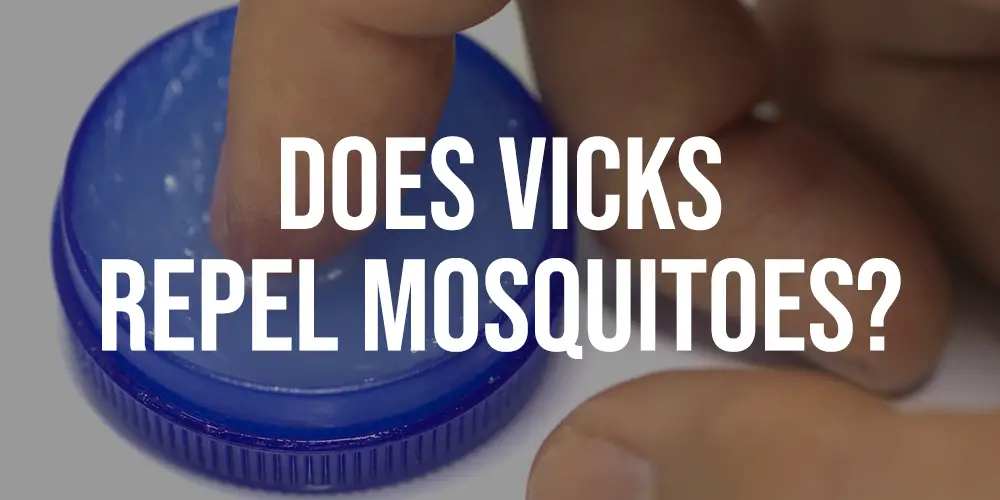Whether you’re enjoying the great outdoors or just relaxing indoors, mosquitoes can be a real nuisance. Luckily, there is a simple and effective way to keep these pesky insects at bay – using Vicks. This popular over-the-counter product contains a number of ingredients that have insecticidal properties, including eucalyptus oil, camphor, and menthol.
The basic answer to the question at hand is yes, and there are some reasons why this is. According to studies, one of the main active components in Vicks – eucalyptus oil – has been shown to repel mosquitoes effectively, which is likely due to its strong aroma.
As noted above the additional compounds mentioned within Vicks that have insecticidal properties, such as camphor and menthol increase the repellency of mosquitoes.
So, if you’re looking for an alternative way to keep mosquitoes at bay, then using Vicks may be a good option.

What Studies Show Vicks As An Alternative Mosquito Repellent?
Studies have shown that eucalyptus oil in particular is highly effective at repelling mosquitoes. (1) This is likely due to its strong aroma, which masks the scents that attract these bugs in the first place. In addition to this, Vicks also contains other ingredients with insecticidal properties, such as camphor and menthol.
Are There Drawbacks to Using Vicks As A Mosquito Repellent?
While Vicks may help repel mosquitoes, it must be reapplied rather than remain effective over an extended period of time. In other words, Vicks may work for a short time, but it is not a long-term solution. For this reason, you may want to consider using other mosquito repellents in addition to – or instead of – Vicks.
There are a number of different mosquito repellents available on the market today. Some contain natural ingredients, while others rely on chemical compounds to get the job done. So, if you’re looking for an easy and effective way to get rid of mosquitoes, then consider using Vicks the next time they bug you!
If you’re looking for a natural mosquito repellent, then you may want to try products that contain citronella or lemon eucalyptus oil. Both of these ingredients have been shown to be effective at repelling mosquitoes. You can find these oils in a variety of forms, including candles, sprays, and lotions.
Alternatively, if you’re looking for a strong chemical mosquito repellent, then products that contain DEET may be your best option. This potent compound has been shown to be highly effective at keeping mosquitoes away. However, it can also have some negative side effects, so be sure to read the label carefully before using it.
No matter which mosquito repellent you choose, it’s important to remember that they all need to be reapplied on a regular basis to remain effective. So, if you find yourself getting bitten by mosquitoes often, then you may want to keep a supply of your chosen repellent on hand to reapply as needed.
Does Vicks Kill Mosquitoes?
There is some evidence that Vicks may kill mosquitoes, as it contains a number of active ingredients with insecticidal properties. In particular, eucalyptus oil in Vicks has been shown to be highly effective at repelling and killing these pests.
However, it is important to remember that Vicks must be reapplied on a regular basis to remain effective, rather than providing long-term protection from mosquitoes. Thus, if you are attempting to use it to kill mosquitoes, then the mosquito would need to have direct contact with a good amount of Vicks; which seems unlikely.
For this reason, you may also want to consider using other mosquito repellents in addition to, or instead of, Vicks. There are many different products available on the market today, including natural alternatives as well as chemical compounds like DEET.
While Vicks may not kill mosquitoes, the ingredients included camphor and menthol, which help boost blood circulation and breaks blood-clotting agents to reduce the itching associated with the bites. Thus, Vicks has a dual use as a mosquito bite relief treatment and slight repellent.
Resources

